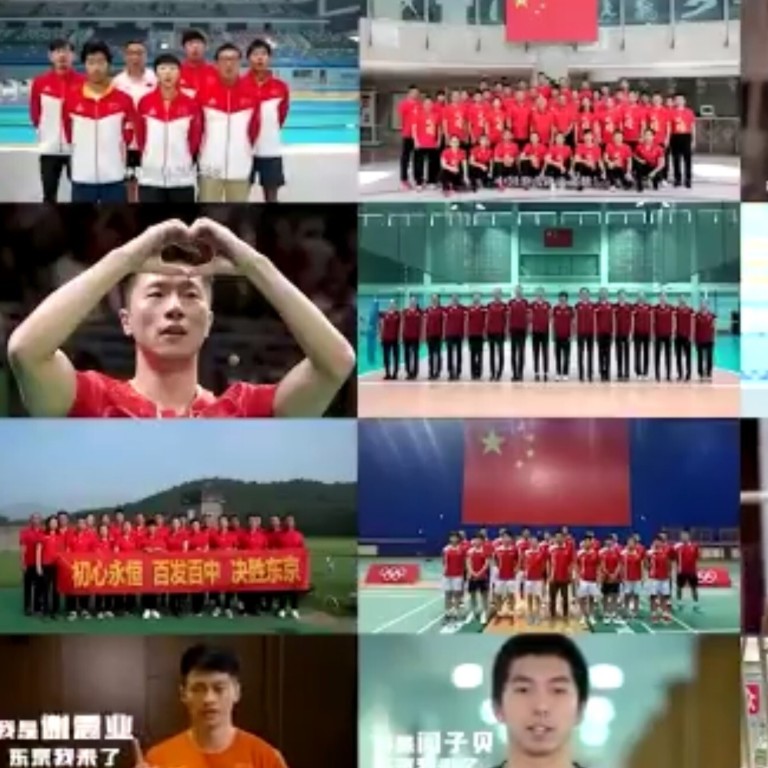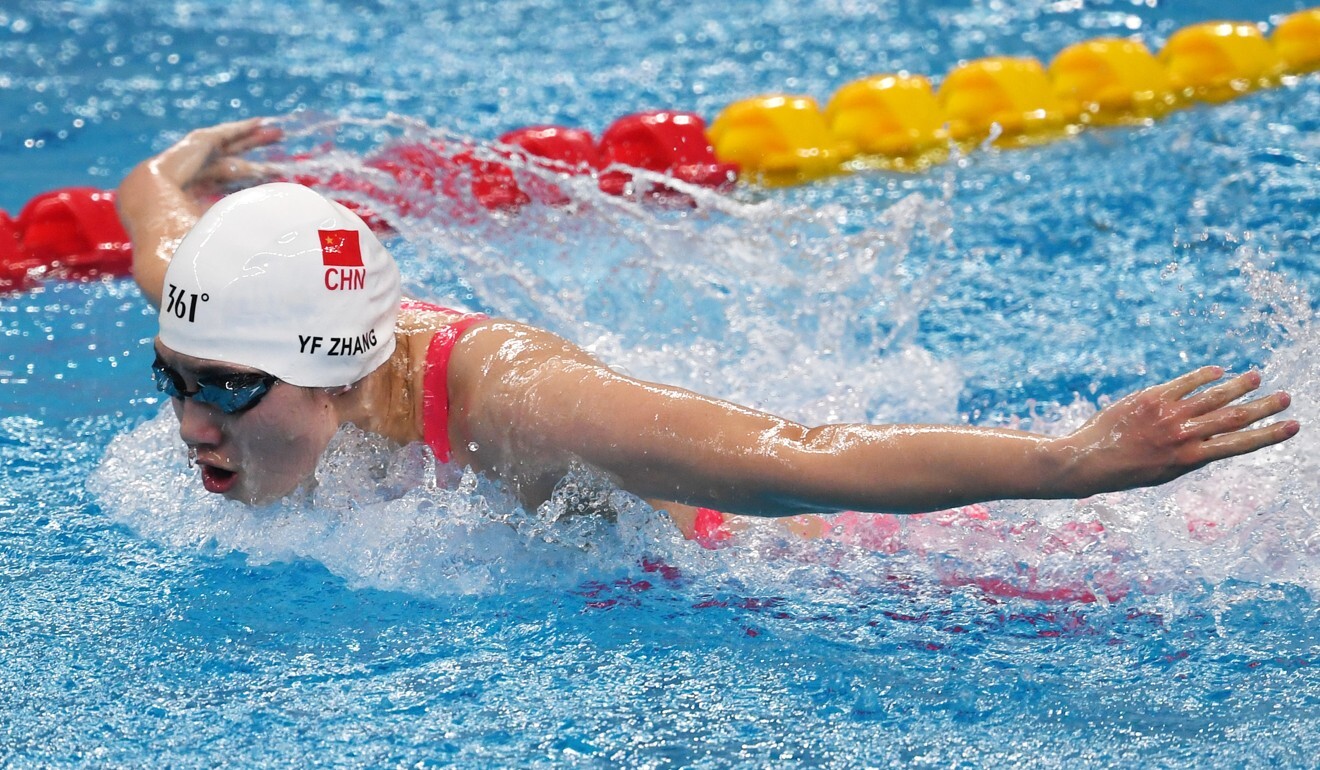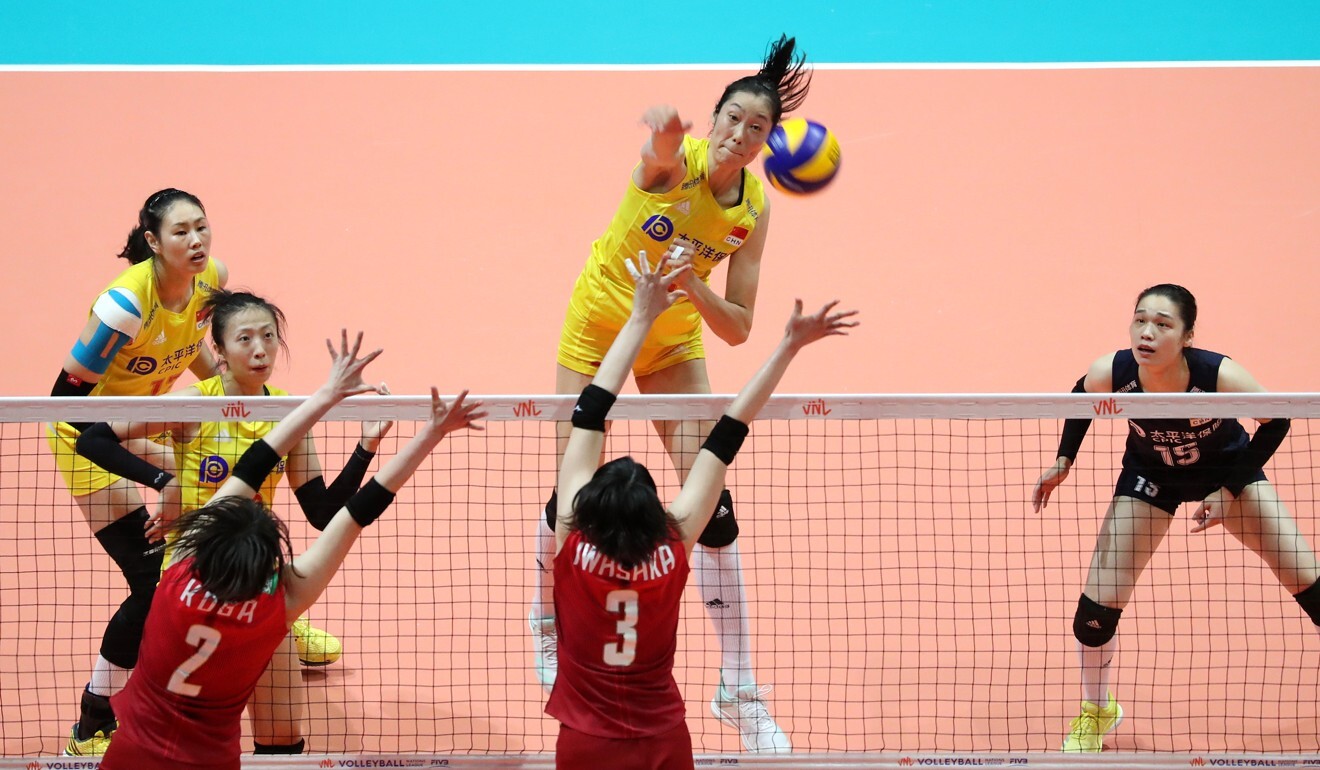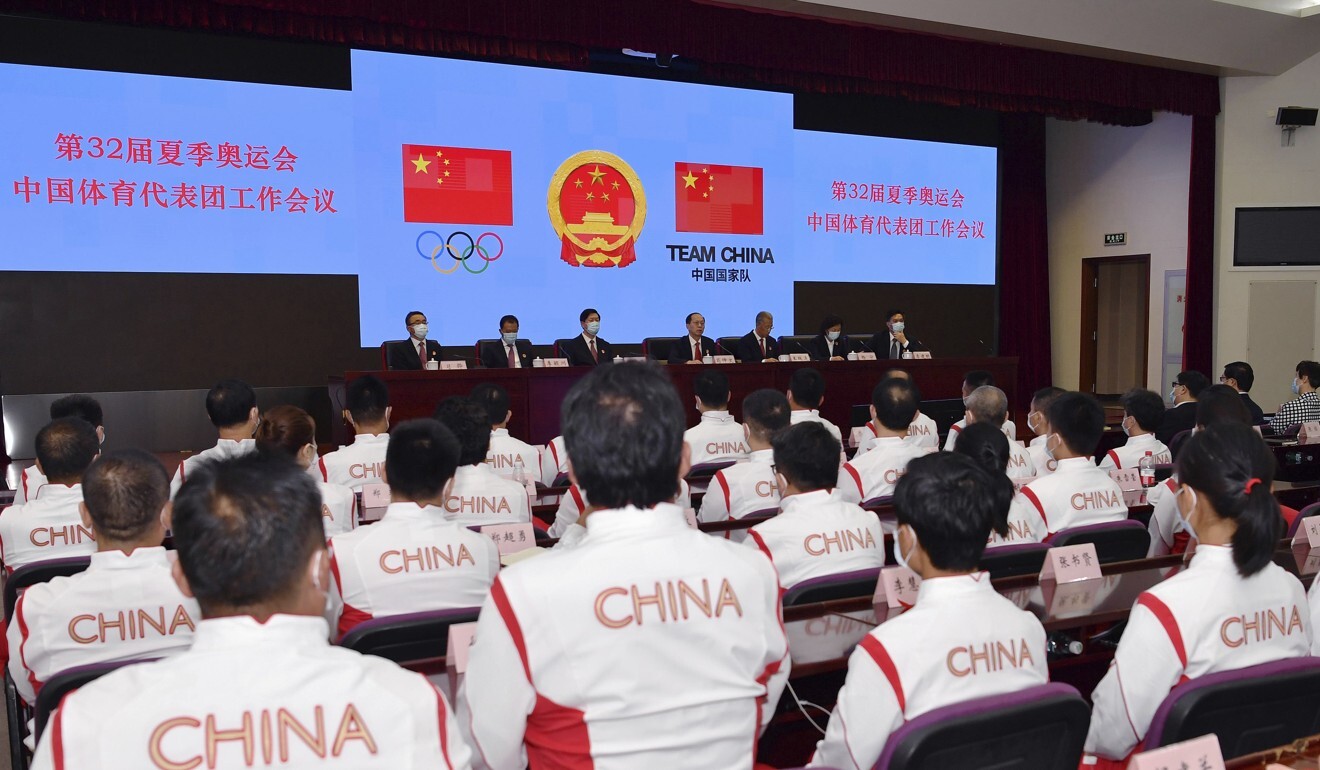
Tokyo Olympics: China desperate to atone for Rio’s ‘worst Olympic flop’ even without star swimmer Sun Yang
- China are sending a large squad of 777, including 431 athletes, as they look to improve from their third place in the medals table five years ago
- Sun Yang is missing but the likes of swimmer Zhang Yufei, volleyball player Zhu Ting and others are expected to lead the way for the mainland squad
China are missing banned superstar swimmer Sun Yang but they will take a record contingent to Tokyo seeking a strong showing with their own Olympics just months away.
The world’s most populous country topped the medals table at Beijing 2008 but then slumped to third behind the United States and Britain at Rio 2016, their worst Olympic performance in two decades with 26 golds.
The disappointment was summed up in a tweet by the state-run Xinhua news agency which said: “No gold for CHN gymnasts, Team China have suffered the worst Olympic flop at Rio 2016.”
At the Tokyo Games, which were pushed back a year by the coronavirus and will finally open on July 23, China will have a giant squad of 777, including 431 athletes – their largest contingent at an overseas Olympics. But if they are to improve on Rio, China will have to do it without their biggest star.
Controversial swimmer Sun, a triple Olympic gold medallist, was banned last month for more than four years after a second doping violation. In his absence, China does not have an internationally recognised big name, but the country will still anticipate picking up gold medals in diving, table tennis and weightlifting.
Chinese media has branded its divers a “Dream Team” capable of carting off all eight golds in the sport. There are also high hopes for the women’s volleyball side, led by star spiker Zhu Ting, and in the swimming pool with Zhang Yufei.
Chinese media dubbed the 23-year-old Zhang “the new butterfly queen” after she soared at the national swimming championships in May, winning five gold medals and a silver.

China’s performances at the Olympics and place in the medals table are always a source of national pride, but there is added spice this time because of the fierce historical rivalry between China and Japan.
Sports blogger Ma Bowen is confident that China will come second in the medals table in Tokyo, behind the United States, partly because Chinese athletes will feel more at home in the familiar surroundings of Japan than they did in Rio.

“Because the Winter Olympics are right on our doorstep, China will want good results [in Tokyo] to drive everyone’s enthusiasm for sport,” added Ma, who has 800,000 followers on the Twitter-like Weibo.
“After Chinese people feel the vibe in Tokyo, they will pay more attention to the Beijing Games.”
Like all athletes, China’s competitors have been badly disrupted by the coronavirus, restricted to national tournaments and training in secure “bubbles” in the lead-up to Tokyo.
State media has, however, been keen to give the impression that they are gamely ploughing on with limited impact to their preparations. Because of repeated obstacles thrown up by the virus, there will be particular interest in the women’s football team.

The “Steel Roses” endured a arduous qualifying campaign that saw them quarantined and training in a hotel corridor in Australia in the earliest days of the pandemic. After repeated delays and rescheduling, they finally sealed a last-ditch spot in Tokyo in April after defeating South Korea in extra time in a tense play-off.
Fittingly, China’s match-winner was Wang Shuang, the Wuhan native who was stranded in the city when the outbreak emerged there towards the end of 2019.

.png?itok=arIb17P0)